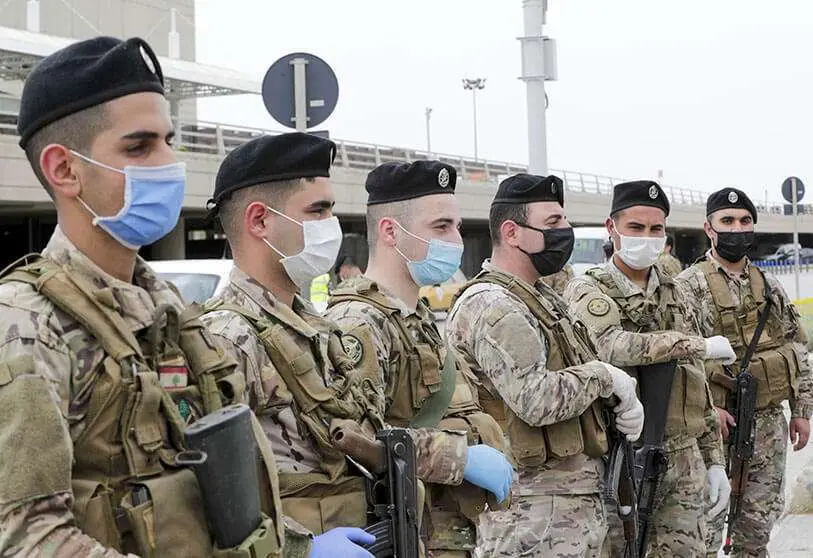Lebanon declares state of health emergency

Lebanon has declared a state of health emergency and imposed a curfew as measures to tackle the spread of COVID-19. The curfew will be in place from 14 January until 25 January and is subject to extension.
The curfew will be enforced by the Lebanese Armed Forces, although some professions and businesses will be excluded. The Council also decided to close down banks and government institutions for 10 days. This is part of the total blockade declared in Lebanon since 7 January.
This decision was taken after hospitals lost their capacity to treat patients infected with COVID-19. Ambulances transported them from one place to another in search of empty beds in emergency departments.
The director of Rafic Hariri University Hospital (RHUH), Dr Firass Abiad, estimated the number of patients who contracted the virus between 3 and 10 January at 30,000, with 120 deaths.
The country's acting Prime Minister, Hassan Diab, told the Supreme Defence Council meeting that they had reached the stage of extreme danger. "Some people in Lebanon think that COVID-19 is a lie. We are facing a terrible health situation," he continued. "The disease has gone out of control because of people's stubbornness and their insubordination to precautionary and preventive measures."
"Our duty is to protect people from themselves. Either we control the situation with a total and strict blockade, or we could move towards a Lebanese model that is worse than the Italian one".
Health Minister Hamad Hassan did not attend a meeting of the ministerial committee in charge of combating the disease, protesting against the government's failure to implement a total blockade during the Christmas and New Year period. This caused some concern about the Council's decision.
The medical profession agrees that the increase in infections is due to the politicisation of the COVID during the Christmas and New Year celebrations.
According to the Crisis Observatory of the American University of Beirut, the failure of the state to manage the COVID-19 crisis is part of a deeply rooted pattern of poor crisis management in Lebanon.
But the governor of Baalbek El Hermel, Bachir Khdor, told Arab News that he did everything he could and took more extreme measures. But some people cooperated and others "ridiculed me". He added that "we cannot dedicate a policeman to every citizen, and we cannot break into houses to make sure they do not have family gatherings."
"I think people should be alarmed and aware of the seriousness of the situation, watching television and seeing hospitals full of patients, and pointing out that every citizen knows at least one person who contracted the virus or died from it," he added.
So far, 222,391 cases of coronavirus infection have been reported in Lebanon, of which 1,629 have died, according to figures provided by Johns Hopkins University.
In the last 24 hours, Lebanese health authorities have confirmed 3,095 new infections of COVID-19 and 23 deaths from the virus.








